HVAC Companies Shirebrook
Find top HVAC Companies in Shirebrook
Receive up to 3 HVAC Companies quotes for your project today! Compare profiles, reviews, accreditations, portfolio, etc... and choose the best deal.

Complete Cooling Services Ltd
524 reviewsUnit 4a, Huss's Lane, Long Eaton, NG10 1G, GBComplete Cooling Services is a local HVAC engineers company providing the best services for heating, ventilation & air conditioning. With over 107 years of combined industry experience and knowledge, our team of highly trained and skilled HVAC engineers deliver exceptional services. We provide a seamless and reliable service when it comes to your HVAC systems installation, maintenance and repairs. Our services include air conditioning installation, repairs, service & maintenance, planned preventative maintenance, and more. We are a local company dedicated to ensuring that all of our customers get the very best service and support when it comes to their air conditioning and comfort cooling requirements.
- Services
- Why Us?
- Our Team
- Gallery
Get Quote
Trane UK
51 reviewsSwadlincote, GBTrane is a leading global provider of indoor comfort solutions and services. Our innovative products and services help buildings and processes work more efficiently, sustainably, and effectively. With a portfolio of energy-efficient HVAC systems, rental solutions, and services, we help customers achieve their goals and reduce their environmental impact. Our solutions are designed to meet the unique needs of various industries, including office buildings, data centers, healthcare, hospitality, chemicals and pharmaceuticals, retail, food and beverage, and district heating and cooling.
- Services
- Why Us?
- Gallery
Get Quote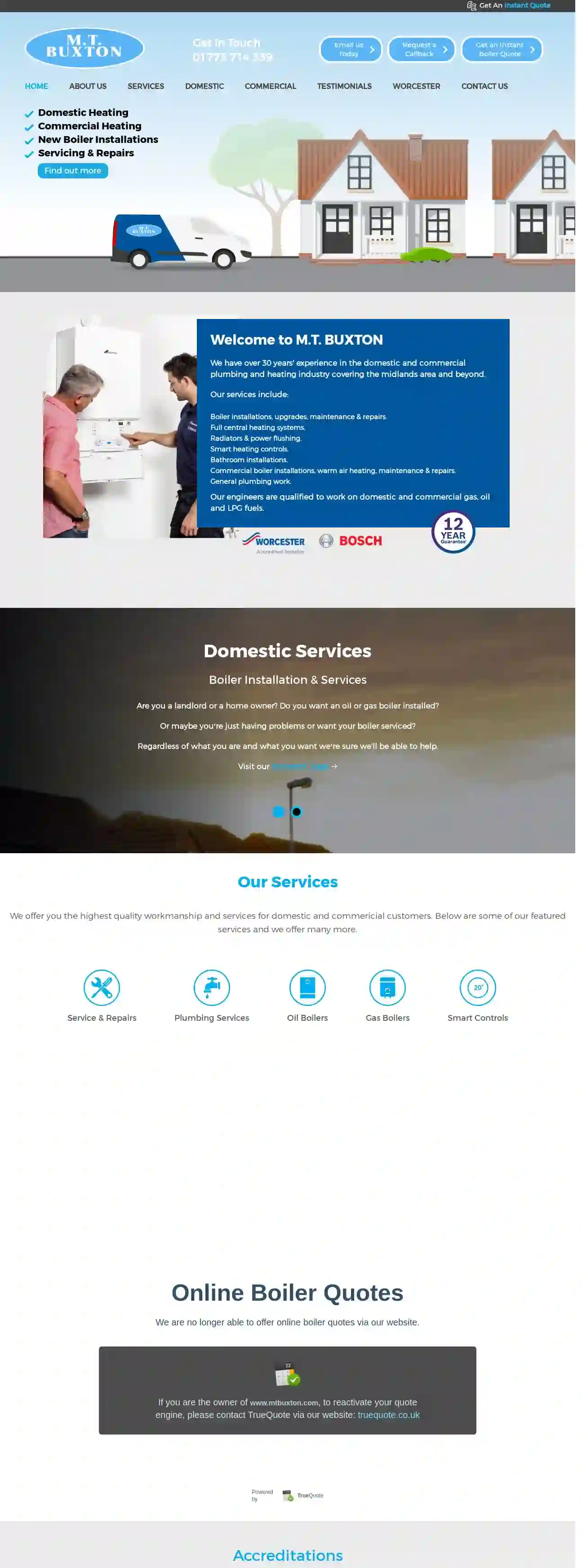
M T Buxton Plumbing & Heating
423 reviewsLangley Mill, 237-241 Station Road, Nottingham, NG16 4AD, GBM.T. Buxton Plumbing & Heating is a company with a structured management team which has a wealth of experience on a variety of domestic and commercial work. We have a solid client base reflecting the twenty four years the company has been in existence and as any reliable contractor we are always seeking to expand and develop. Our client list currently includes the Co-Operative Group, Sandicliffe Motors and Repton School to name just a few. We are confident and well able to meet the demands in providing both quality and competitive quotations for a wide spectrum of domestic and commercial work. We are adequately staffed to handle a wide range of contracts from domestic works up to the multi-disciplined service installations associated with larger projects. The company's Senior management, and the assigned contracts engineer, closely monitor the installations to maintain our high standard of workmanship, working closely with all of our directly employed labour force. Our company strategy pursues contracts throughout the UK which would include installation work, planned and reactive maintenance. We trust this proves of sufficient interest and we would welcome any enquires either by our contact page.
- Services
- Why Us?
- Accreditations
- Gallery
Get Quote
Sports Tech Ltd
4.867 reviewsIlkeston, GB- Services
- Why Us?
- Gallery
Get Quote
Richmond Air Conditioning Ltd
4.610 reviewsDerby, GBRichmond Air Conditioning Limited is a refrigeration and air conditioning specialist providing quality AC installations, maintenance, and repairs throughout Derby, Nottingham, and Leicester. With over 30 years of experience, our team of local air conditioning professionals is dedicated to ensuring your systems run smoothly and efficiently. Whether you're looking for cooling solutions for your office, home, or any other space, we have the expertise and equipment to meet your requirements.
- Services
- Why Us?
- Gallery
Get Quote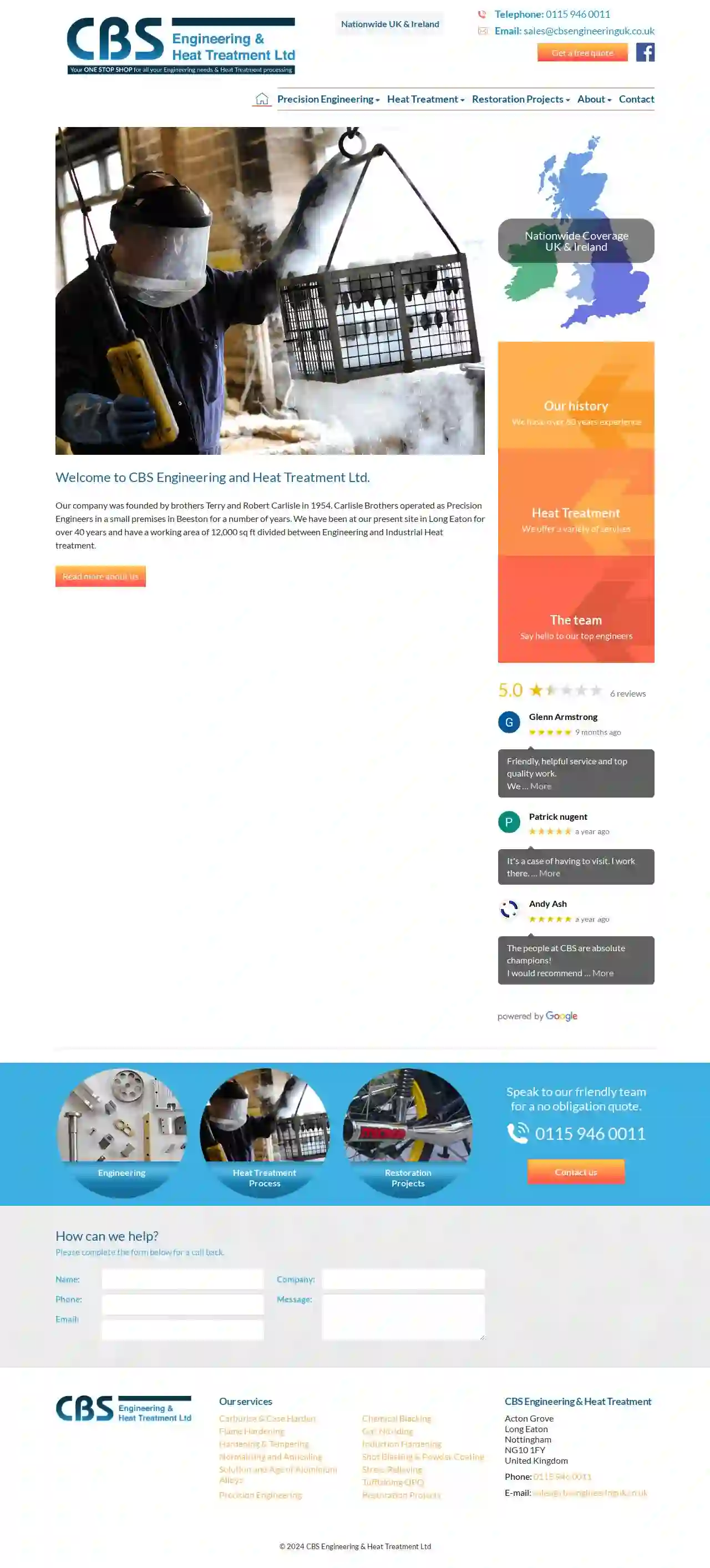
C B S Engineering and Heat Treatment Ltd
56 reviewsLong Eaton, Nottingham, Acton Grove, NG10 1FY, GBWelcome to CBS Engineering and Heat Treatment Ltd. Our company was founded by brothers Terry and Robert Carlisle in 1954. Carlisle Brothers operated as Precision Engineers in a small premises in Beeston for a number of years. We have been at our present site in Long Eaton for over 40 years and have a working area of 12,000 sq ft divided between Engineering and Industrial Heat treatment. Read more about us. Nationwide Coverage UK & Ireland. Our history We have over 60 years experience. Heat Treatment We offer a variety of services. The team Say hello to our top engineers.
- Services
- Why Us?
- Our Team
- Testimonials
- Gallery
Get Quote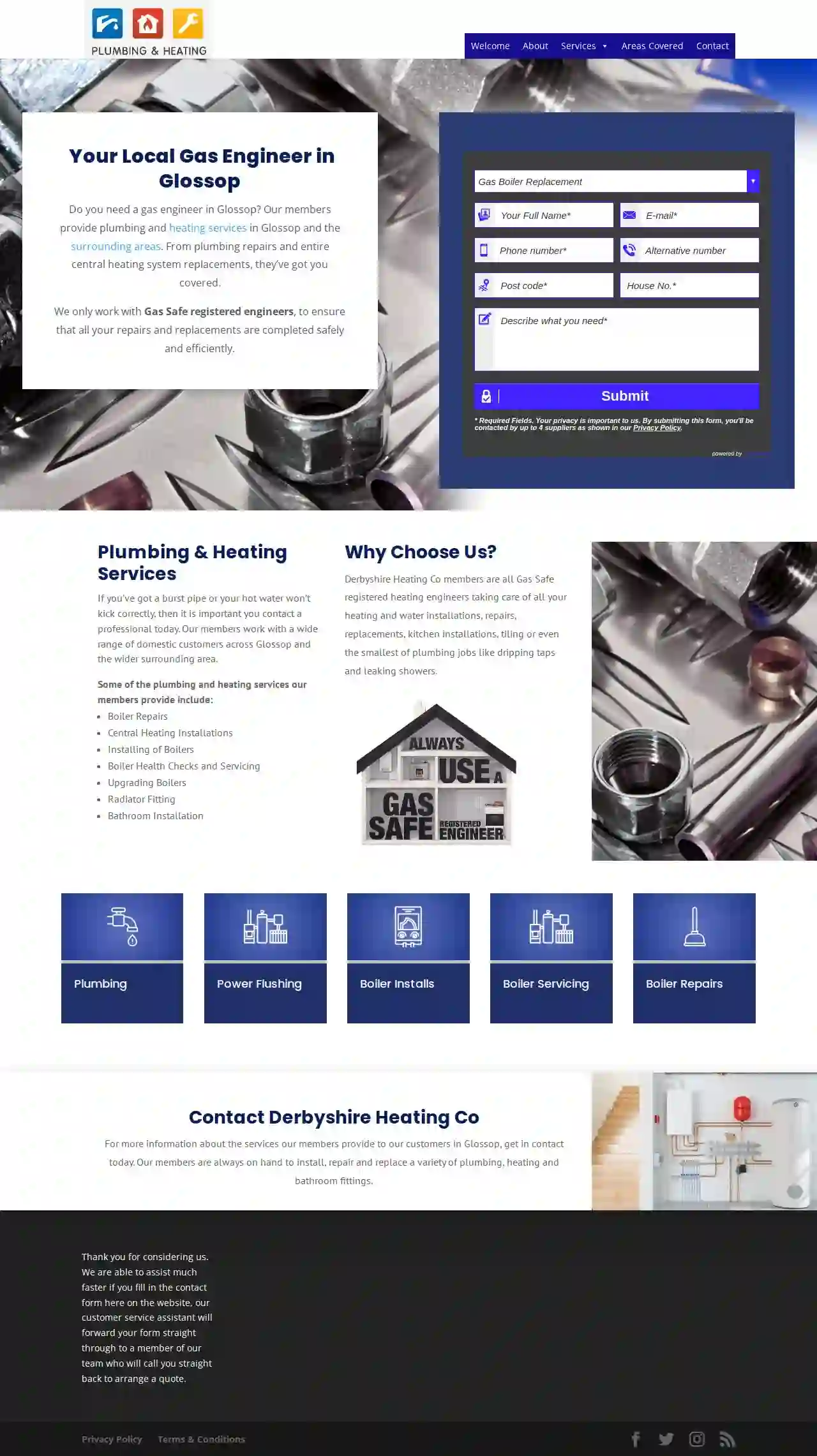
Gas Safe UK
Unit 1, 10-12, The Old Mill, Glossop, DE1 1AA, GBDerbyshire Heating Co connects you with Gas Safe registered heating engineers across Derbyshire and the surrounding areas. Whether you need a plumber, boiler installation, repairs, or servicing, our members are here to help. They handle everything from burst pipes and hot water issues to full central heating system replacements, kitchen installations, tiling, and even small jobs like dripping taps. Contact Derbyshire Heating Co today for a quote and experience reliable, efficient service from trusted professionals.
- Services
- Why Us?
- Accreditations
- Gallery
Get Quote
Andrews Sykes Hire Ltd.
54 reviewsUnit 1, 10-12, Nottingham Business Park, Nottingham, NG1 1AA, GBAndrews Sykes is a global company with a unique 165-year history of providing bespoke HVAC and pumping solutions nationwide, 24/7. We are the UK’s leading provider of temporary heating, cooling, and pumping equipment, with a wide range of products to suit all needs. Our team of experts is dedicated to providing our customers with the highest quality service and support.
- Services
- Why Us?
- Gallery
Get Quote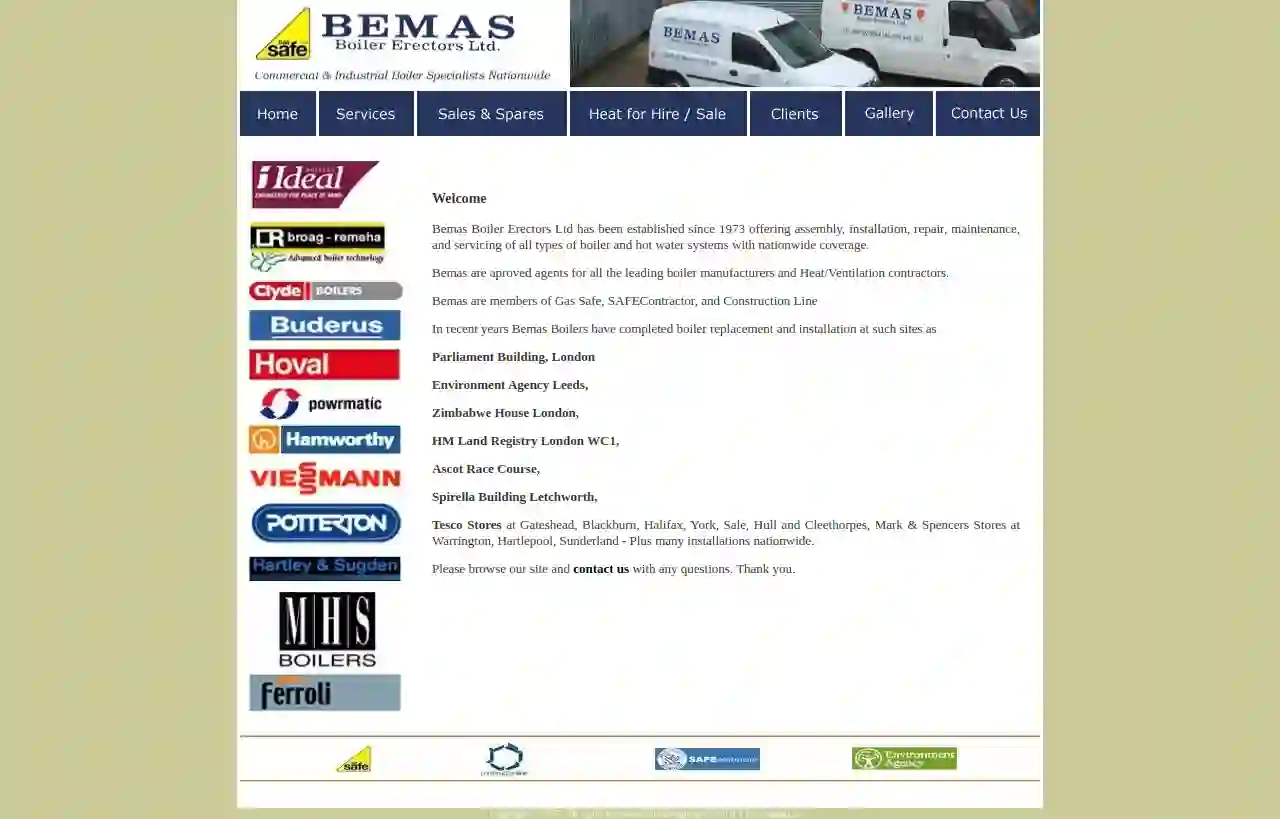
Bemas Boilers Ltd
Cilfton Avenue, Long Eaton, NG10 2GA, GBBemas Boiler Erectors Ltd has been established since 1973 offering assembly, installation, repair, maintenance, and servicing of all types of boiler and hot water systems with nationwide coverage. Bemas are approved agents for all the leading boiler manufacturers and Heat/Ventilation contractors. Bemas are members of Gas Safe, SAFEContractor, and Construction Line. In recent years Bemas Boilers have completed boiler replacement and installation at such sites as Parliament Building, London, Environment Agency Leeds, Zimbabwe House London, HM Land Registry London WC1, Ascot Race Course, Spirella Building Letchworth, Tesco Stores at Gateshead, Blackburn, Halifax, York, Sale, Hull and Cleethorpes, Mark & Spencers Stores at Warrington, Hartlepool, Sunderland - Plus many installations nationwide. Please browse our site and contact us with any questions. Thank you.
- Services
- Why Us?
- Gallery
Get Quote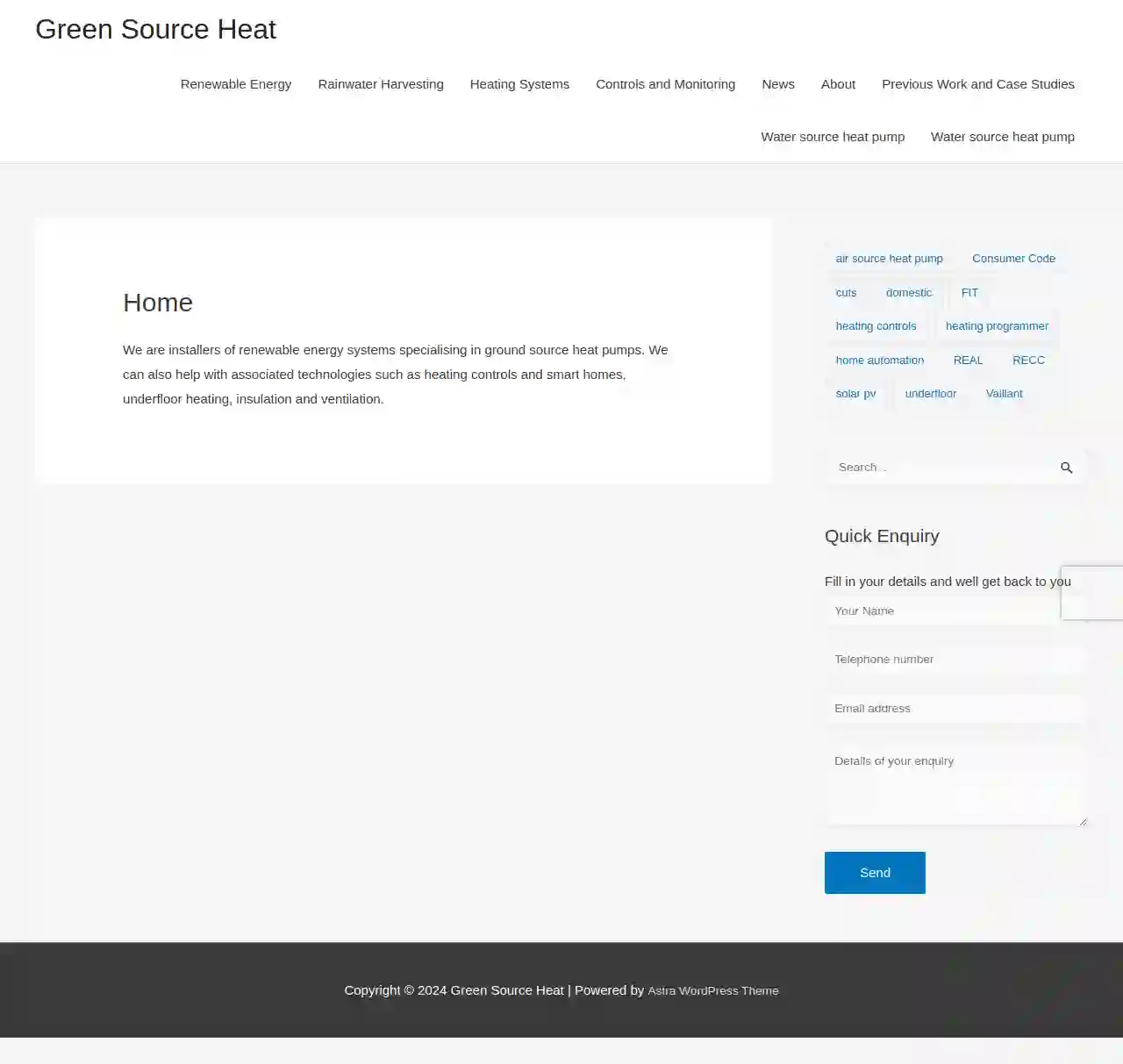
Green Source Heat
Glossop, GBGreen Source Heat are installers of renewable energy systems specialising in ground source heat pumps. We can also help with associated technologies such as heating controls and smart homes, underfloor heating, insulation and ventilation.
- Services
- Why Us?
Get Quote
Over 12,692+ HVAC Companies in our network
Our HVAC contractors operate in Shirebrook & beyond!
HVACCompaniesHub has curated and vetted Top HVAC Businesses arround Shirebrook. Find the most trustworthy contractor today.
Frequently Asked Questions About HVAC Companies
- AC not cooling: Refrigerant leaks, compressor issues, or thermostat problems.
- Furnace not heating: Pilot light or ignition control issues, blower motor problems, or clogged filters.
- Uneven temperatures: Ductwork leaks, inadequate insulation, or faulty thermostats.
- Poor air quality: Dirty air filters, mold growth in ductwork, or inadequate ventilation.
- Strange noises: Unusual sounds from the system can indicate a variety of problems with different components.
- High energy bills: Inefficient systems, ductwork leaks, or improper thermostat settings.
- Reduced Airflow: Noticeably weaker airflow from your vents.
- Dusty Vents: Dust accumulation around your vents.
- Increased Dust: More dust than usual in your home.
- Allergies or Respiratory Issues: Worsening allergy symptoms or respiratory problems.
- Higher Energy Bills: A dirty filter restricts airflow, forcing your furnace to work harder.
- Overheating: The system overheats due to restricted airflow.
- Split Systems: The most common type, consisting of an outdoor unit (condenser/compressor) and an indoor unit (air handler/furnace).
- Heat Pumps: Provide both heating and cooling by transferring heat between indoor and outdoor air.
- Ductless Mini-Splits: Ideal for homes without existing ductwork or for adding heating and cooling to specific zones.
- Packaged Units: A single unit that contains all the system's components.
- Geothermal Heat Pumps: Use the earth's stable temperature to provide highly efficient heating and cooling.
What are the most common HVAC problems?
Common HVAC problems include:
How can I tell if my furnace filter needs changing?
What is a ductless mini-split system?
What are the different types of HVAC systems?
What are the most common HVAC problems?
Common HVAC problems include:
- AC not cooling: Refrigerant leaks, compressor issues, or thermostat problems.
- Furnace not heating: Pilot light or ignition control issues, blower motor problems, or clogged filters.
- Uneven temperatures: Ductwork leaks, inadequate insulation, or faulty thermostats.
- Poor air quality: Dirty air filters, mold growth in ductwork, or inadequate ventilation.
- Strange noises: Unusual sounds from the system can indicate a variety of problems with different components.
- High energy bills: Inefficient systems, ductwork leaks, or improper thermostat settings.
How can I tell if my furnace filter needs changing?
- Reduced Airflow: Noticeably weaker airflow from your vents.
- Dusty Vents: Dust accumulation around your vents.
- Increased Dust: More dust than usual in your home.
- Allergies or Respiratory Issues: Worsening allergy symptoms or respiratory problems.
- Higher Energy Bills: Your furnace becomes less efficient.
- Overheating: The system overheats due to restricted airflow.
What is a ductless mini-split system?
What are the different types of HVAC systems?
- Split Systems: The most common type, consisting of an outdoor unit (condenser/compressor) and an indoor unit (air handler/furnace).
- Heat Pumps: Provide both heating and cooling by transferring heat between indoor and outdoor air.
- Ductless Mini-Splits: Ideal for homes without existing ductwork or for adding heating and cooling to specific zones.
- Packaged Units: A single unit that contains all the system's components.
- Geothermal Heat Pumps: Use the earth's stable temperature to provide highly efficient heating and cooling.